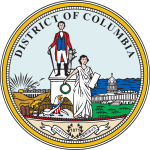
Each of the 50 U.S. states, the District of Columbia, and territories of the United States holds either primary elections or caucuses to help nominate individual candidates for president of the United States. This process is designed to choose the candidates that will represent their political parties in the general election.

The 2012 United States presidential election was the 57th quadrennial presidential election, held on Tuesday, November 6, 2012. Incumbent Democratic President Barack Obama and his running mate, incumbent Vice President Joe Biden, were re-elected to a second term. They defeated the Republican ticket of former Governor Mitt Romney of Massachusetts and Representative Paul Ryan of Wisconsin.
The following is a timeline of major events leading up to the United States presidential election of 2012. The election was the 57th quadrennial United States presidential election and was held on November 6, 2012.

Voters of the Republican Party elected state delegations to the 2012 Republican National Convention in presidential primaries. The national convention then selected its nominee to run for President of the United States in the 2012 presidential election. There were 2,286 delegates chosen, and a candidate needed to accumulate 1,144 delegate votes at the convention to win the nomination. The caucuses allocated delegates to the respective state delegations to the national convention, but the actual election of the delegates were, many times, at a later date. Delegates were elected in different ways that vary from state to state. They could be elected at local conventions, selected from slates submitted by the candidates, selected at committee meetings, or elected directly at the caucuses and primaries.

The 2012 United States presidential election in New Hampshire took place on November 6, 2012, as part of the 2012 United States presidential election in which all 50 states plus the District of Columbia participated. New Hampshire voters chose four electors to represent them in the Electoral College via a popular vote pitting incumbent Democratic President Barack Obama and his running mate, Vice President Joe Biden, against Republican challenger and former Massachusetts Governor Mitt Romney and his running mate, Congressman Paul Ryan.

The 2012 United States presidential election in South Carolina took place on November 6, 2012, as part of the 2012 United States presidential election in which all 50 states plus the District of Columbia participated. South Carolina voters chose 9 electors to represent them in the Electoral College via a popular vote pitting incumbent Democratic President Barack Obama and his running mate, Vice President Joe Biden, against Republican challenger and former Massachusetts Governor Mitt Romney and his running mate, Congressman Paul Ryan.

The 2012 Florida Republican presidential primary was held on January 31, 2012. Fifty delegates were at stake, none of them RNC delegates; it is unclear whether these delegates will be allocated proportionally or winner-take-all. Originally awarded 99 delegates, the Republican National Committee removed half of Florida's delegates because the state committee moved its Republican primary before March 6; the Republican National Committee rules also set the delegate allocation to be proportional because the contest was held before April 1. It is a closed primary. There were 4,063,853 registered Republican voters as of January 3, 2012.

This article contains the results of the 2012 Republican presidential primaries and caucuses, which resulted in the nomination of Mitt Romney as the Republican nominee for President of the United States. The 2012 Republican primaries were the selection processes by which the Republican Party selected delegates to attend the 2012 Republican National Convention from August 27–30. The series of primaries, caucuses, and state conventions culminated in the national convention, where the delegates cast their votes to formally select a candidate. A simple majority (1,144) of the total delegate votes (2,286) was required to become the party's nominee.
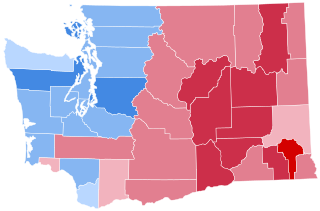
The 2012 United States presidential election in Washington took place on November 6, 2012, as part of the 2012 United States presidential election in which all 50 states plus the District of Columbia participated. Washington voters chose 12 electors to represent them in the Electoral College via a popular vote pitting incumbent Democratic President Barack Obama and his running mate, Vice President Joe Biden, against Republican challenger and former Massachusetts Governor Mitt Romney and his running mate, Congressman Paul Ryan.
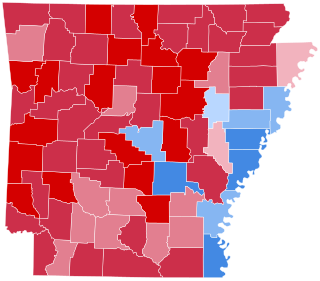
The 2012 United States presidential election in Arkansas took place on November 6, 2012, as part of the 2012 General Election in which all 50 states plus the District of Columbia participated. Arkansas voters chose six electors to represent them in the Electoral College via a popular vote pitting incumbent Democratic President Barack Obama and his running mate, Vice President Joe Biden, against Republican challenger and former Massachusetts Governor Mitt Romney and his running mate, Congressman Paul Ryan.

The 2012 United States presidential election in Connecticut took place on November 6, 2012, as part of the 2012 United States presidential election in which all 50 states plus the District of Columbia participated. Connecticut voters chose seven electors to represent them in the Electoral College via a popular vote pitting incumbent Democratic President Barack Obama and his running mate, Vice President Joe Biden, against Republican challenger and former Massachusetts Governor Mitt Romney and his running mate, Congressman Paul Ryan. Obama and Biden carried Connecticut with 58.1% of the popular vote to Romney's and Ryan's 40.7%, thus winning the state's seven electoral votes. Romney managed to flip the traditionally Republican Litchfield County, which Obama had won in 2008. As of the 2020 United States presidential election, this was the last election that the Democratic presidential nominee won Windham County.
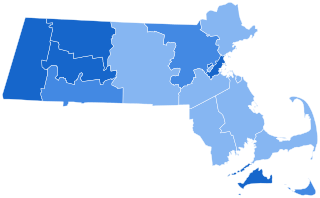
The 2012 United States presidential election in Massachusetts took place on November 6, 2012, as part of the 2012 United States presidential election in which all 50 states plus the District of Columbia participated. Massachusetts voters chose 11 electors to represent them in the Electoral College via a popular vote pitting incumbent Democratic President Barack Obama and his running mate, Vice President Joe Biden, against Republican challenger and former Massachusetts Governor Mitt Romney and his running mate, Congressman Paul Ryan.

The 2012 United States presidential election in North Carolina took place on November 6, 2012, as part of the 2012 general election in which all 50 states plus the District of Columbia participated. North Carolina voters chose 15 electors to represent them in the Electoral College via a popular vote pitting incumbent Democratic President Barack Obama and his running mate, Vice President Joe Biden, against Republican challenger and former Massachusetts Governor Mitt Romney and his running mate, Congressman Paul Ryan.

The 2012 United States presidential election in Oklahoma took place on November 6, 2012, as part of the 2012 United States presidential election in which all 50 states plus the District of Columbia participated. Voters chose seven electors to represent them in the Electoral College via a popular vote pitting incumbent Democratic President Barack Obama and his running mate, Vice President Joe Biden, against Republican challenger and former Massachusetts Governor Mitt Romney and his running mate, Congressman Paul Ryan. For the third election in a row since 2004, no third parties were allowed on the ballot.

The 2012 United States presidential election in Tennessee was held on November 6, 2012, as part of the 2012 United States presidential election in which all 50 states plus the District of Columbia participated. Tennessee voters chose 11 electors to represent them in the Electoral College via a popular vote pitting incumbent Democratic President Barack Obama and his running mate, Vice President Joe Biden, against Republican challenger and former Massachusetts Governor Mitt Romney and his running mate, Congressman Paul Ryan.

The 2012 United States presidential election in Vermont took place on November 6, 2012, as part of the 2012 United States presidential election in which all 50 states plus the District of Columbia participated. Vermont voters chose three electors to represent them in the Electoral College via a popular vote pitting incumbent Democratic President Barack Obama and his running mate, Vice President Joe Biden, against Republican challenger and former Massachusetts Governor Mitt Romney and his running mate, Congressman Paul Ryan.
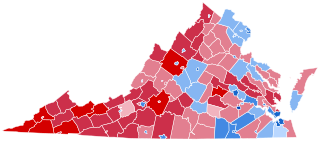
The 2012 United States presidential election in Virginia took place on November 6, 2012, as part of the presidential election in which all 50 states plus the District of Columbia participated. Virginia voters chose 13 electors to represent them in the Electoral College via a popular vote pitting incumbent Democratic President Barack Obama and his running mate, Vice President Joe Biden, against Republican challenger and former Massachusetts Governor Mitt Romney and his running mate, Congressman Paul Ryan.

The 2012 United States presidential election in Wisconsin took place on November 6, 2012, as part of the 2012 United States presidential election in which all 50 states plus the District of Columbia participated. Wisconsin voters chose 10 electors to represent them in the Electoral College via a popular vote pitting incumbent Democratic President Barack Obama and his running mate, Vice President Joe Biden, against Republican challenger and former Massachusetts Governor Mitt Romney and his running mate, Congressman Paul Ryan.

The 2012 United States presidential election in the District of Columbia took place on November 6, 2012, as part of the 2012 United States presidential election in which all 50 states and the District of Columbia participated. D.C. voters chose three electors to represent them in the Electoral College via a popular vote pitting incumbent Democratic President Barack Obama and his running mate, Vice President Joe Biden, against Republican challenger and former Massachusetts Governor Mitt Romney and his running mate, Congressman Paul Ryan. Prior to the election, Washington DC was considered to be a definite win for Obama; the nation's capital is heavily Democratic and has always voted for Democratic nominees for president by overwhelming margins.

The 2012 Tennessee Republican presidential primary took place on Super Tuesday, March 6, 2012, with 58 national delegates. Former Senator from Pennsylvania, Rick Santorum won the primary with a plurality, carrying 37.11% of the vote and all but four counties, awarding him 29 delegates.

